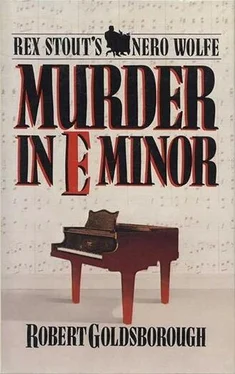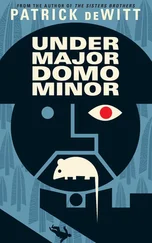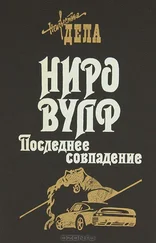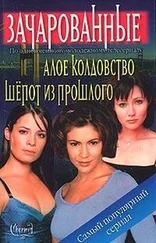“I appreciate your offer,” Wolfe said dryly. “I also appreciate the mention of your various disputes with Mr. Stevens. It saves me the trouble of having to bring it up as the raison d’être for this gathering.” He paused for a sip of beer. “Mr. Meyerhoff, since you brought up the subject, I’ll ask you first: What were the bases of your disagreements with Milan Stevens?”
“I assume you know at least a part of the answer to that question already, from your talks with Jason. But as long as I’m here, I might as well indulge you, to use your own word.” He leaned forward again, elbows on the arms of his chair. “I’ve been managing director of the Philharmonic for a little over six years now. When I joined it, the orchestra was in chaos. The music director at that time was incapable of exercising authority and maintaining discipline — I think that’s a fair statement, isn’t it, David?”
Hirsch nodded, grim-faced. “Yes, in fact an understatement. ‘Chaos’ is the word I’d use, too.”
Meyerhoff went on. “The Symphony board decided after several years of badgering from a number of us that a change had to be made. It was about then that Jason became chairman, and he was strongly in favor of hiring Milan, who at that time was in London. Milan had a well-known name in music circles, particularly in Europe, but from musicians and other orchestra people I’d heard things about him that I didn’t like.”
“What things?” Wolfe asked.
“Well, for one, his choice of repertoire. Instead of trying to introduce his audiences to some of the lesser-known composers and some more contemporary music, he invariably took a safe ‘popular’ tack: a lot of familiar, comfortable works — by all the favorite composers. But you’d rarely see him conduct Berg or Schonberg or Bruckner, or give the premiere of a new work. I felt the Symphony should be more innovative and experimental in its repertoire. You need some of the traditional and the popular, yes, but there should be a balance. Stevens simply was not the man to supply that balance.” All the while Meyerhoff spoke, Hirsch nodded at varying speeds.
“Another thing was Milan’s personality,” Meyerhoff continued. “The Symphony needed discipline, yes, but not despotism. This is an orchestra of great individual talents, Mr. Wolfe. For instance, Don here is the finest flutist in the United States, perhaps the world.” Sommers flushed and muttered a denial. “Yes, you are, Don, and I’d say it whether you were sitting here or not. Anyway, the Symphony is loaded with great talent, and it takes a skilled, tactful music director to make these marvelously gifted individuals play well together. You don’t do that with an iron hand alone; there must be a subtle mixture of understanding and discipline. I know one shouldn’t speak ill of the dead, but the truth is that Milan Stevens simply didn’t have the warmth to handle the situation. He could keep order, but he lacked the humanity necessary to coax greatness from his players.
“Time and again I talked to him, urged him to loosen up and be more flexible. But the answer was always the same: There is no substitute for firmness, and they must know who is boss.’ And whenever I suggested he modify his approach, he became angry.”
“Mr. Hirsch, do you concur with this assessment?” Wolfe asked.
Hirsch cleared his throat again. “Yes, yes I do. I was also associate conductor under Milan’s predecessor, and when Milan was chosen, I was disappointed. I won’t deny that I’d hoped I might be picked as music director myself, but” — he shrugged in acceptance — “that was not to be. I resolved to work with the new director, but almost from the beginning, Milan made it clear to me by his actions that I would have almost nothing to say about how the orchestra was run. I often wondered why he even kept me around, but one day I figured it out. It didn’t matter who the associate conductor was; under Milan Stevens, he would have very little responsibility, so he probably felt it might as well be me as anyone.”
“I understand you have a composition that you hoped the orchestra would someday play,” Wolfe said.
Hirsch passed a hand over his forehead. “Yes, that’s so,” he said after a pause.
“But it was not played?”
Another pause. “No. Milan apparently felt it was not... of sufficient caliber to merit a Symphony premiere.” Hirsch compressed his lips.
“Why ‘apparently’?” Wolfe asked.
“I say ‘apparently’ because Milan never came right out and said the symphony wasn’t good. But every time I brought it up, he changed the subject or put it off by saying something like ‘Oh, yes, we’ve got to sit down and talk about this when things ease up, but right now is such a hectic time.’ He was always too busy. And yet I know it is a good work — I’ve shown it to many people in the music world whose opinions I respect, and everyone has been enthusiastic, far more than they needed to be just to make me feel good.”
“Other than its quality, what reason might Mr. Stevens have for not playing your symphony?”
Hirsch shook his head. “I don’t know, unless he just didn’t want his assistant to get a share of the spotlight.”
“Mr. Hirsch,” Wolfe said, “was there an open hostility between you and Mr. Stevens?”
Hirsch fiddled with his glasses and uncrossed his legs. “I wouldn’t say so. We did argue sometimes, usually in private, about his treatment of some of the orchestra members.”
“You thought he was too much the martinet?”
Hirsch nodded. “Yes, he humiliated some of them during rehearsals, shouting insults, generally demeaning them. I felt it upset the whole orchestra, destroyed morale. Instead of getting them to play better, which I assume was the intent, it had the opposite effect.”
“This was a frequent occurrence?”
“Yes, at practically every rehearsal. It was as if he enjoyed being so cruel.”
“And you reminded him of it?” Wolfe asked.
“Quite often. But he would just brush me aside. ‘They are professionals,’ he would say, ‘and I expect them to play like professionals, not like members of some community orchestra.’”
Wolfe shifted his weight. “Is it true, Mr. Hirsch, that you once told Mr. Stevens you would kill for the orchestra?”
“What?” Hirsch twitched like he’d just gotten a high-voltage jolt. “Who told you that? I never said such a thing!”
By this time, both Meyerhoff and Sommers were trying to jump in. “Gentlemen!” Wolfe snapped it off. It wasn’t loud, but it shut all three of them up. “If you please, at the risk of being repetitious, you’ll all be able to leave here sooner without interruptions.” He turned back to Hirsch.
“It has been said that you spoke the following, or something very similar, at a meeting in Mr. Stevens’s office: ‘I’d kill before I saw this orchestra go to hell. And if things keep on this way, that’s where it will go.’ Well, Mr. Hirsch?” Wolfe’s eyes narrowed.
Beads of perspiration were forming on Hirsch’s nose bridge, above his glasses. He looked at Meyerhoff and Sommers, then licked his lips. “Mr. Wolfe, I never said that, or anything like it.” His voice was tense but low, and he accented each word. “I don’t talk that way,” he continued, gaining speed. “Ask anyone I know. I wouldn’t use a word like ‘kill,’ or even ‘hell.’ I can’t—”
“That’s true,” Meyerhoff cut in. “I’ve never heard David—”
“Enough!” Wolfe spat, silencing Meyerhoff. “Mr. Hirsch, please go on.”
“I started to say, I can’t imagine who would make up a story like that. It just isn’t true. I was angry with Milan quite a few times — many times — but I would never, ever say such a thing.” He looked around again, at each one of us, and then down at his lap. I started feeling sorry for the guy.
Читать дальше












